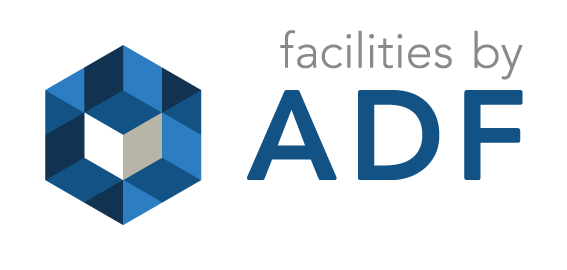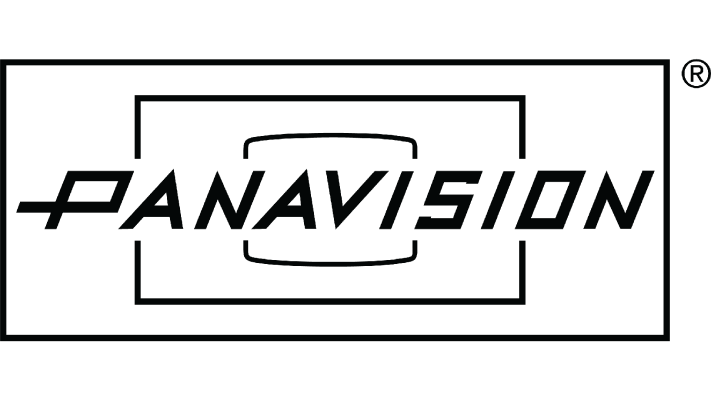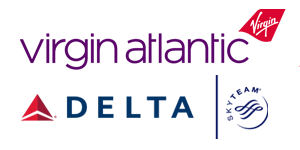Development
The Production Development period generally relates to the period before a decision is made as to whether or not the project will be commissioned. Whether the Production proceeds beyond development or not, the accountant’s responsibility is to ensure that a detailed and documented record of all income and expenditure, incurred or committed in the development period, is prepared and approved. Speculative development expenditure does not qualify as core-expenditure for UK tax credit purposes so it does not benefit from UK tax credit relief.
The Pre-Production period is the period just prior to commencement of Principal Photography.
Sources of Production Finance
During the development period the Producer’s role is primarily to raise the necessary Production finance. There are a number of production finance sources as follows:-
Primary License
The broadcaster commissions a production and pays a license fee for a set number of transmissions (TXs) in a defined territory.
EIS Finance
The UK currently has an Enterprise Investment Scheme (EIS) which, subject to strict rules, enables investors to obtain tax relief for the cost of the shares and which entitles them to sell the shares after a set period without incurring capital gains tax on any profit. The link to the HMRC website which gives full details of this scheme is:
UK Film/TV tax relief
Tax relief is available in the UK for feature film production, high-end TV drama, children’s TV and animation. Best practice is to seek advice from a film & TV specialist accountancy firm. The UK Creative Industries Tax Relief is being phased out and a new Audio Visual Expenditure Credit is taking its place. The links to the HMRC website concerning two options are:
www.gov.uk/guidance/corporation-tax-creative-industry-tax-reliefs
Loan Finance
Loan finance for film and TV production is not generally available with two exceptions:-
1. Tri-partite agreement finance
The Tri-Partite agreement is a standard three-way contract negotiated by PACT. The three parties to the Contract are generally the Production Company, the broadcaster and a finance Company (usually a bank) and under the terms of the agreement the bank agrees to lend the Production Company funds on the understanding that, upon delivery of the programme, the broadcaster will pay the agreed licence fee to the production. A link to the PACT website is:
2. Tax relief finance
There are a small number of companies and banks in the UK who are prepared to advance loans to production companies to cashflow the UK tax relief. Each company involved in this specialist form of finance has its own specific requirements concerning the project set up.
3. Distribution/pre-sales advances and pre-sales advances
A distribution/pre-sales advance is an agreement with a distributor who gives a minimum guarantee advance to a production company in return for securing the distribution rights for the production. If programme sales exceed a pre-set level, further distribution royalties may be paid but whatever the sales the distributor is contractually bound to pay the minimum guarantee.
Overseas tax relief
Several countries in the world offer tax relief to encourage Producers to make programmes in their country. Such arrangements are subject to change. It should be remembered that each country has different rules and eligibility criteria, and some countries have a maximum amount that they will pay out in a financial year, so there are risks that apply to this funding.
www.ep.com/production-incentives/
Product Placement
This is an embedded marketing technique used by companies and brands who will pay for or provide expensive products for free, so that they are featured in the Production. Many broadcasters have strict rules about Product Placement and these must be taken into account before relying on this as a source of finance.
Crowd Funding
Crowd funding is a way of raising small amounts of finance from large numbers of people. The investors are often offered incentives such as their name in the credits, an opportunity to be an extra or an invitation to the premier. Crowd-funding income is not zero-rated for vat and accountants should consult the HMRC Website for up to date information on this subject.
https://www.gov.uk/guidance/sponsorship-and-vat-notice-70141#section5
Other
- Equity Funding – is available from organisations such as BFI and Channel 4.
- Investment from high net worth individuals.
Completion Guarantors
A completion guarantee or completion bond is a guarantee to the financiers of a film that the film will be completed in accordance with the approved screenplay and budget and delivered by a certain date. If the film goes over its approved budget it is generally the responsibility of the guarantor to fund any overages. In return for assuming the risks of delivery and budget overages the guarantor charges a fee which is a fixed percentage of the budget and will insist the budget contains a contingency for unforeseen costs.
In order to decide whether or not to give a completion bond on a specific project the guarantor will review the script, shooting schedule, post-production schedule and budget in detail to determine whether the budget is adequate for the demands of the screenplay and the production plans envisaged by the producer and director. The guarantor will also want to be assured that the principal crew involved have the necessary degree of experience to handle the project.
Before committing to giving a bond the guarantor will also need to be satisfied that the film is fully financed: that the funds raised by the producer equal the cost of the film and are available as needed.
Having provided a completion bond it is not the guarantor’s intention to interfere with the running of the film but to monitor the production on a daily basis by means of call sheets, progress reports and weekly cost statements. This will be supplemented by frequent contact with the producers and the production accountant.
From an accountant’s perspective regular, transparent and frequent contact with the guarantor’s representative is essential.
Budgeting & Scheduling
Once the project has been given the go ahead, the funder will expect both a budget and a schedule for the production. The schedule will vary in length and complexity depending on the nature and size of the project and as soon as it has been prepared and agreed by the Producer, Director and Line Producer it will form the basis on which the budget is produced. In television, the budget is usually prepared by the Producer, the Line Producer/PM or someone with the relevant expertise.
INITIAL CONSIDERATIONS
The list of initial considerations of relevance to the Production Accountant is such that no one set of rules is likely to cover all eventualities. In a situation where the Production Accountant starts working on a new production in pre-production then it is necessary to gain an overview of the Production.
The following matters are of immediate relevance:
1) What is the subject matter and genre of the production; is it a series and how long is each finished programme?
2) You need access to the detailed budget and schedule for the production.
3) You need access to the funding plan: who provides the funding for the budget and when is the funding likely to be received, and what are the funders’ requirements from the production.
4) How the Producer / Financier require the accounts office to operate.
Bespoke TV/Film specific software is available for budgeting but a spreadsheet is also an effective budgeting tool.
In the UK, there are some standard formats for different genres of programme and, whilst many of the broadcasters use similar formats, it is worth ascertaining exactly what format is acceptable to the broadcaster/funder for which the production is being made for.
The following files detail common formats used.
The Production Accountant’s function usually is to assist by verifying that:
- The budget is consistent with the schedule
- There are no obvious omissions
- Budget rates are reasonable
- Fringes have been correctly applied etc
It would also be sensible to check all budget additions as ‘input errors’ can cause items to be excluded from the overall budget total.
The budget review is best completed by someone different from the person who created the original budget, as it is generally very hard to question your own logic. The rule of thumb when reviewing a budget is to read the synopsis and then try to think imaginatively of factors that might apply to that Production which are not reflected in the budget. Experience is helpful in this process but even an inexperienced person can use common sense to imaginatively review a budget. It must also be remembered that the purpose of the budget review is not only to identify un-budgeted or under-budgeted items; the review should also identify areas of the budget that may not be needed or which are over-prudent. Every production will have areas that go over-budget and it follows that the Line Producer/Production Manager need to make some budget savings to compensate for over-budget areas.
Whilst everyone will have their own method of budget review there are one or two things that every budget review should entail as follows:-
- Overview – Look at the total budget figure and compare it to the budget for similar programmes or to the published tariff for that genre of programme (many broadcasters publish a guideline tariff on their website for each genre). Look at the budget for each area of the budget and consider whether it instinctively feels right. Whilst this review is by no means an exact science it can focus your attention on specific areas (such as post-production) that merit further review.
- Detailed Review – This part of the review entails looking at each line of the budget and deciding whether it is correctly costed and consistent with the schedule, the synopsis and other parts of the budget.
- Integrity Review – Verify that the mathematical logic in the budget is correct so that it adds up, that all budgeted lines are included in the total budget and that all fringes have been correctly applied. A fringe is an amount within the budget that is an automatic calculation based on the level of specific costs within a budget that attract certain additional charges. For example, in the UK, national insurance costs depend on the level of salary paid to an employee and a national insurance fringe would therefore estimate the national insurance likely to be incurred on certain salaries which have been tagged as NI’able salaries.
- Consistency Review – Do all budget lines tell the same story for the production? If filming is for 6 weeks, then are all the filming costs budgeted for 6 weeks eg equipment hire, location fees, catering, crew etc.
Where a budget review indicates that a budget is unrealistic it is very important that this is addressed before going into production. If a budget is inadequate then either additional funding must be found or the programme must be shot in a different way to enable it to be made for the budgeted sum. Pressing on regardless and hoping it all works out is not a sensible option! An under-budgeted Production is in trouble from day one!
BUDGETING BY GENRE
Factual/Documentary
To produce a factual genre budget, a synopsis of the programme or series with details of the delivery requirements are required. The synopsis should indicate where shooting is likely to take place, the length of each programme and what archive or music is likely to be used. The synopsis should also impart the ‘feel’ of the intended production. Are we dealing with a visually stunning production involving rolling aerial long-shots of beautiful scenery or is the programme likely to involve a lot of “talking heads”?
Having arrived at an overview of the production the next step is to decide on the production schedule. The simplest productions have the following phases:-
- Development -when the production is researched, budgeted and funded
- Pre-production – the preparation period that precedes the ‘production’ period
- Production – when shooting occurs
- Post-production – when editing occurs
- Delivery – when the programme is delivered to the broadcaster along with delivery paperwork and the final cost report.
In reality, most productions have periods of overlap and often post-production work will take place at the same time as production work is taking place. Where a series is commissioned there will be periods where one programme is in pre-production whilst another is in post-production.
Having arrived at a sensible schedule, budgeting is now a matter of going through the standard format budget lines and using experience and knowledge of industry rates and procedures to arrive at a budget. Budgeting is very much a process of using experience and common sense to arrive at a sensible and workable budget figure.
Entertainment / Comedy
Entertainment and comedy can cover a wide spectrum of subjects such as magic, award shows, cookery or reality television shows. In principle, the budgeting process for such shows is much the same as for Factual programmes.
Drama / Scripted Comedy
Drama and scripted comedy are considered more complicated to budget than other genres but have the advantage of being script driven. The accurate way to budget is to analyse each scene in the script noting the location, the artists required, set requirements and anything with a cost implication. Having broken down the complete script the person compiling the budget needs to make decisions as to the most efficient order to shoot the drama in order to minimise the cost of production. Much of this process is driven by common sense or necessity. For example, where a specific location is required by the script it would usually be most cost effective to shoot all the scenes in this location together to minimise location hire costs and set dressing costs. Furthermore, a scene where a set is destroyed by fire would have to be shot after another scene using the same set before its destruction.
The schedule takes the form of a detailed daily shooting plan listing each day’s crew, artists, equipment and location requirements. Having drawn up this schedule the daily requirements have to be costed to arrive at the first-draft budget.
Animation/VFX
Animation and VFX is a specialist area and should only be budgeted by someone who understands the complete process and is aware of related costs.
Cashflow Forecasts
At the start of pre-production it is necessary to draw up a cashflow forecast for the production. The function of the cashflow forecast is to estimate, based on the budget and the production schedule, when production expenditure is likely to occur and when production income is likely to be received. Cumulative income and expenditure can then be compared to arrive at an estimated cash position for the production at all stages.
Many broadcasters have standard invoicing terms for each genre but the Production Accountant should not assume that the standard terms will automatically work for the production being undertaken and should compare cumulative production income using the standard terms to the likely cumulative production expenditure.
Where the cashflow forecast indicates at any stage of production that cumulative expenditure is likely to exceed cumulative income then, in discussion with the Producer, a plan has to be put in place to cover the projected cash shortfall. Such a shortfall might occur where part of the production budget is to be financed by tax relief which will not be paid until several months after delivery of the programme. A cashflow shortfall can be met by negotiating earlier payments from funders or by asking suppliers to agree to have payment of their invoices deferred until a later date or by a loan.
The Production Accountant also needs to consider the implications of VAT timing differences on the production cashflow, and where this is likely to be an issue the Production Accountant should incorporate VAT income and expenditure into the cashflow forecast. At this stage, the Production Accountant should also consider whether it is necessary to apply to HMRC to file monthly VAT returns (rather than the standard quarterly returns) to help the production cashflow.
Currency Cashflows
A further complication when looking at cashflow forecasts and funding is the impact of foreign currency income and expenditure. Where a production has expenditure in a foreign currency the Production Accountant needs to consider where that foreign currency will come from.
If, for example a production is budgeting to spend £1 million in France, the production is going to need £1million pounds of Euros. In an ideal situation, £1million of the production funding would be in Euros but the Production Accountant needs to ensure that the Euro funding will be received before the Euro expenditure and that a Euro bank account has been opened so that the Euro income does not have to be translated into sterling on receipt and then back into Euros when the Euro expenditure occurs. If the Euro funding is expected to be received after the Euro expenditure, the Production Accountant should consider whether it is appropriate to do a matched forward exchange deal with the bank whereby the production purchases £1 million of euros so that it can finance its euro expenditure and then sells £1m of euros at a date in the future after receipt of the Euro funding. The main advantage of a matched forward exchange deal is that it fixes the currency exchange costs such that the production is not affected if exchange rates move adversely. Such a deal though does require the Euro funding to arrive on time and the Production Accountant should ensure that all parties (including the Euro funders) are aware that additional costs will be incurred if payment is made late.
In summary, the Production Accountant needs to consider the currency requirements (if any) for the production and the associated timings. They should plan material currency purchases in advance to avoid exposure to adverse exchange rate movements and consider hedging.
The following links give examples of production cashflow forecasts:
Accounting Software
It is very common for drama productions to use Movie Magic Scheduling and Movie Magic Budgeting software packages. It is useful for Production Accountants to be familiar with Movie Magic budgeting as it helps when reviewing and checking the budget, making necessary amendments, producing ‘what if’ scenarios, and making comparisons between different versions of the Budget. The Production accountant must also be able to interpret the schedule although it is not usually necessary for him/her to be able to use the Movie Magic Scheduling package.
There are other budgeting packages eg OctopusPMI, or the budget may be produced on a spreadsheet.
There are a number of different accounting packages available for use. Some are specialist packages designed for film and TV production, whereas others are more general packages.
The specialist film/TV accounting packages incorporate cost reporting functionality. Some current popular systems in the UK include: Eclipse, Moneypenny, PMI Octopus, PSL and Smart Accounting. Non specialist packages commonly used include Sage and Xero.
Factors to consider when choosing and setting up an accounting package:
The accounting package normally used by the production company; it may be necessary or beneficial to operate the same system.
- The accounting package normally used by the production company; it may be necessary or beneficial to operate the same system.
- Will the accounts need be consolidated with any other accounts?
- Is episodic costing required?
- Is it necessary to flag ‘used and consumed’ for tax relief?
- Is it necessary to keep a regional analysis?
- Will it be necessary to record costs in different currencies?
It is also important to consider data protection and data security when setting up systems. The lists below detail some key factors for consideration.
Other systems
Other systems / software to consider setting up include:
- Purchase Orders
- Electronic filing
- On boarding
- Time sheets
- Payroll Bureau
- P cards (Pre paid debit cards)
- Emails
- Making Tax Digital access for Accounts
Data Protection
The 2018 Data Protection Act dictates the responsibility employers have when processing and storing personal data on individuals. This is particularly relevant to production accounts offices due to all the contract and payroll information held.
Personal data includes:
- name
- address
- date of birth
- sex
- education and qualifications
- work experience
- National Insurance number
- tax code
- details of any known disability
- emergency contact details
Everyone responsible for using personal data has to follow strict rules called ‘data protection principles’. They must make sure the information is:
- used fairly and lawfully
- used for limited, specifically stated purposes
- used in a way that is adequate, relevant and not excessive
- accurate
- kept for no longer than is absolutely necessary
- handled according to people’s data protection rights
- kept safe and secure
- not transferred outside the European Economic Area without adequate protection
How to secure your computer
- Securely back up data (every day whilst in Production!)
- Full hard disk encryption
- Portable data encryption – for USBs, CD/DVDs
- Install anti-malware software that includes email and spam protection
- Remember to log out – of devices, emails & sites
- It may be appropriate to install VPN (Virtual Private network) software which gives you online privacy and anonymity.
- Keep all devices and software up to date
- Keep all personal information off line, away from hackers
- Limit the number of mailing lists signed up for
- Watch out for bogus links, attachments and offers
- Encrypt internet e-mail
- Be aware of how secure the wifi access is
- Regularly clean up hard drive
- Install a firewall
- Install software to track the device
- Always password protect emailed documents
- Consider the security of sending personal data, eg payroll information
- Consider using a secure file transfer system (e.g ProjectSend) to transfer confidential information
How to secure your Smart phone
- Set a password
- Install Security Software
- Enable the capability to remotely wipe your device if it is lost
- Download trusted apps only
Nominal ledger / Chart of Accounts
There is not currently any standard chart of accounts used for production budgets. However, the order of budget areas is generally similar, usually starting with above the line costs of development, writer, director, producer and main cast.
Many broadcasters have defined their standard set of nominal ledger account codes and the Production Accountant is required to use that format, so it is always best to check whether the cost report can be produced using the same chart of accounts as the budget.
Some popular charts of accounts include Channel 4 (the 5-35 Accounts), ITV (01-32 Accounts), BBC Drama (100-800 Accounts) and Channel 5 (500-3500).
Please note these are for reference only and you should always check with your line manager for the most recent version when working on a project.
Where a standard set of account codes is not required it is generally sensible to set up a separate nominal ledger account for each line of the budget. During a production it is often necessary to add additional nominal ledger accounts for un-budgeted costs or for costs that you need to keep separate for some reason.
Some thought should also go into the balance sheet accounts that you will need. Every Production Accountant will have their own preference for balance sheet accounts but it is often a good idea to set up a separate account for each person with petty cash or a float to account for. However suspense accounts should not be used.
Budgeting Top Tips
Break every programme down into smaller parts
A factual series may consist of several different types of programmes. For example, an arts series may consist of three studio discussion programmes, six location shoots across the country and one theatre shoot. The person budgeting such a series needs to have a budget for each type of programme, a budget for central costs such as core staff and overheads and also must make an assumption as to numbers of each type of programme that will appear in the series.
Scripted programmes would need to be broken with reference to the final script and filming schedule.
Amort & Pattern Budgeting
US TV studios require Amort and Pattern budgeting and costing for multi-episodic commissions.
A Pattern budget is produced for the cost of one episode/block, and is repeated for the number of episodes/blocks commissioned.
The Amort costs are those not specifically related to the length of shooting, so if there is a change in the number of episodes/blocks, the amort costs remain the same. These costs are then amortized across the Pattern (episode/block) costs. So, if additional episodes are commissioned, the value of the amortization allocation per episode would decrease.
The cost report is required to summarise the results for each Pattern (episode/block) and with the Amort costs amortized against each Pattern.
State assumptions
Key assumptions in a budget must be clearly stated so that the person reviewing the budget is able to challenge those assumptions, eg foreign exchange rates, number of shooting weeks, shooting locations.
Budget for the worst case scenario initially
A good budgeting method is to do a first-draft budget which includes everything the Director might wish for. This budget will generally be significantly higher than the funder is prepared to pay and discussions can then take place with the Producer, the funder and the Director to ascertain which areas of the budget can be reduced to arrive at a budget acceptable to all parties.
Budgeting for unknowns
It is very hard to budget for a programme unless a detailed synopsis of the programme is available. For example, where you are given a script or synopsis for one programme and asked to budget for a series based on that one script/synopsis then the budget must clearly state that the series budget assumes that each programme will cost a similar amount to the one detailed in the script/synopsis provided.
Another example of this scenario is commonly encountered when budgeting for magic shows. Many magic tricks require bespoke props, critical timing and long set-ups and unless the person budgeting the series has a full list of the proposed tricks supported by a magic expert’s costing of the props, with a detailed breakdown of the set-up required, the budgeting is very much guesswork. Assumptions must be clearly stated so that if a more expensive scenario is later demanded by the broadcaster then additional funding can be negotiated.
Use contingencies
Where there is uncertainty in a budget don’t be afraid to put in contingency allowances to cover uncertainties. An arrangement can be made with funders whereby the un-used part of a contingency is returned to the funder.
Obtain quotations where possible
If you don’t have the expertise to budget a specialist area then request quotations from experts in that field. VFX (visual effects), for example can generally only be budgeted by a VFX expert who understands the complete process.
Take a prudent approach
A good budget should always veer on the side of caution so budget allowances should ideally be on the generous side.
Budgeting for overseas currency transactions
When budgeting for foreign currency income or expenditure it is sensible to assume worst case scenario exchange rates (i.e. assume prudent rates of exchange).
Don’t try to budget a programme to a set figure
Where the person doing the budget wants the budget to be a set figure (because, for example the broadcaster has said this is what they will pay) then there is a danger that the budget loses objectivity. A budget should first be prepared based on the synopsis and then discussion should occur as to how that budget can be reconciled to the available finance.
Are actual deliverables consistent with the budget?
Each source of finance will have specific and contracted requirements as to delivery format and different versions for domestic/overseas sales etc and the Production Accountant needs to be confident that these are adequately provided for in the overall budget. It would also be sensible to have the contractual requirements reviewed and costed by a Post Production Supervisor or facility house just to ensure that the budgeted provisions are realistic. It is important that if the numbers need to be changed the Producers and funders should be made aware of this as soon as possible.
NOTE: This guide contains general information only. Nothing in the guide constitutes legal advice. You should consult a suitably qualified lawyer on any specific legal problem or matter.



























